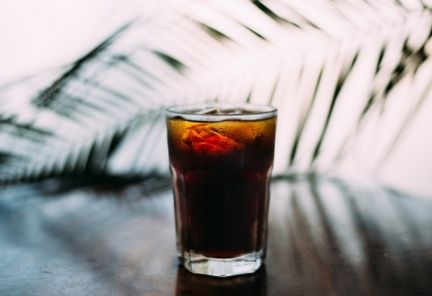Do you call it pop or soda? Depending on where you live you might call the sugary carbonated soft drink pop or soda or maybe even a combination of the two - soda pop. Whatever you call your soft drink, Canada and the U.S had a combined approximate total revenue of $255.7 billion of the sugary carbonated drink in 2018. It’s safe to say that North America loves their soft drinks.
But did you know that pop has been used by anglers to save the life of fish? Or has it?

THE CONTROVERSY
There are many catch and release anglers who have used a carbonated beverage like Diet Coke or Mountain Dew by pouring it on a fish’s wound to stop the bleeding. Fish have very little blood in their bodies, and it doesn’t take long for a fish to bleed out. In an attempt to save a bleeding fish, especially big trophy-sized fish from dying, anglers have poured their drink on the fish’s wounds with the belief that it will cauterize the wound.
THE SCIENCE
This has led a group of researchers from Carleton University to explore this idea. And wouldn’t you know it, their findings were exactly what you would think (or not). They found that the carbonated beverages that North Americans seem to love so much, have just been wasted trying to save the life of a fish.
But Dr. Bruce Truffs, who is a professor at Queen’s University and specializes in fish physiology says otherwise. He says that carbonated drinks do in fact help. “The carbonation in pop causes the gills to vasoconstrict and stop bleeding.”

THE FIELD
As it seems like the science community cannot agree on the matter, and neither can anglers. There are a group of anglers who are advocating people stop this practice immediately. At the same time, some anglers are advocating that pop is just as important as a pair of pliers!
STIX & STONES
We try to do our best to always handle fish with care and mainly practice catch and release. We believe that proper fish handling is a key component to having a sustainable lasting fishery for generations to come.
Although we have never used the soda method to save a fish, we believe that if you think that a fish is going to bleed out and die and you are not going to keep that fish. It would be best for you to try and save the life with soda on the soon-to-be-dead fish. It would also be best to use tonic water or carbonated water eliminating sugar and other pollutants out of the water. But whatever is on hand would be best at the moment!
We hope that more clear evidence comes forward in the coming years, making it clear whether this method to save fish’s lives works or not! And who knows, maybe we will see a major fishing company team up with Pepsi or Coke to create a Fish Life Saver in a Can, creating extra billions of dollars in revenue - as they need it!!




